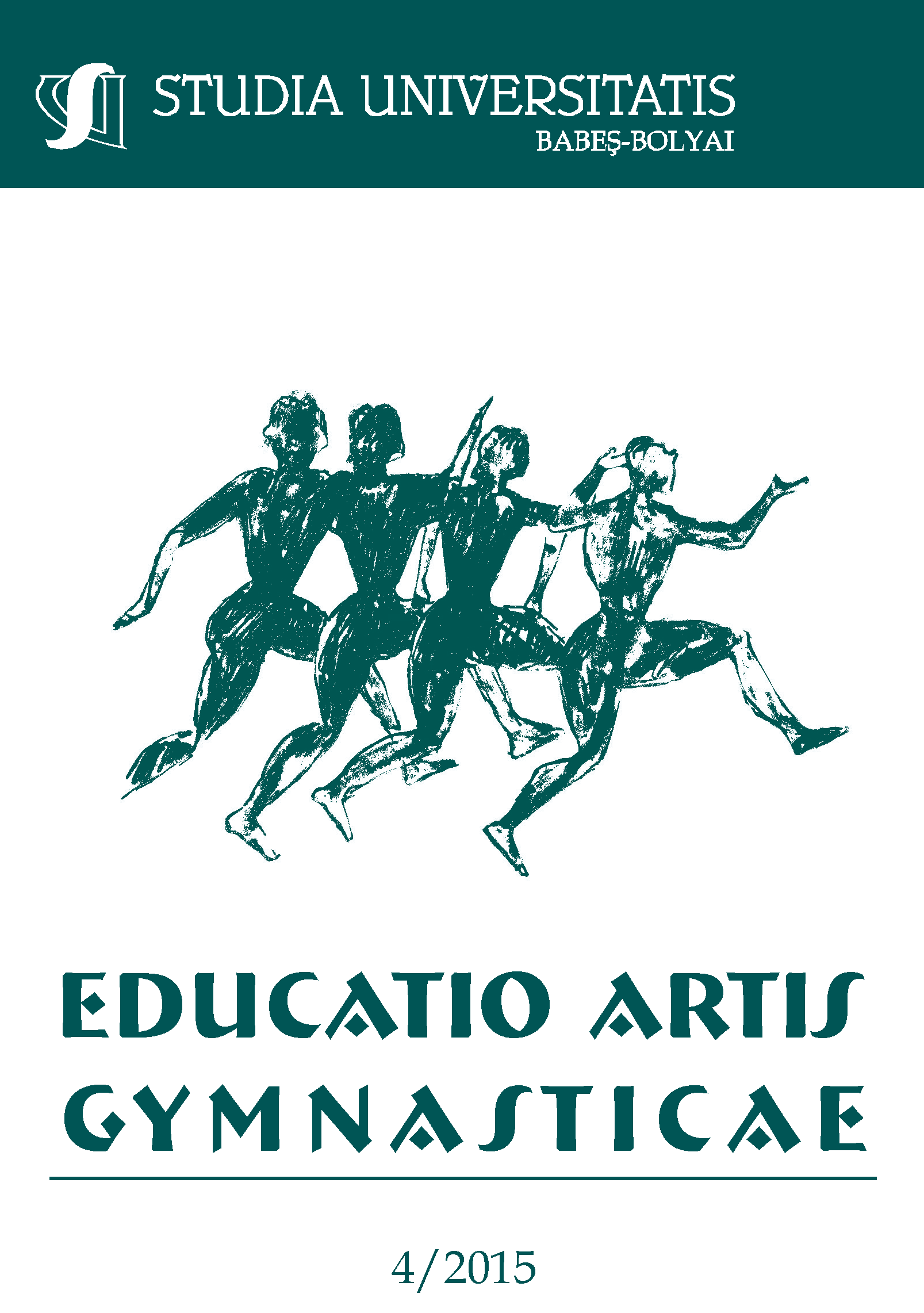STUDY OF THE INFLUENCE OF EMOTIONAL INTELLIGENCE UPON SPORT PERFORMANCE OF GYMNASTS
Keywords:
sport performance, emotional intelligenceAbstract
Trainers and parents have always been interested in sport achievement and children’s emotional adaptation both inside and outside of the official framework provided by a sport club. However, in the last period, the researchers found out that the child’s emotional life has a significant impact on the aforesaid two aspects. Thus, the Emotional Intelligence has become an important area of research in the field of human resources, management, sport and psychology. Goleman (1995) believes that development of the students’ emotional aptitudes is as important as the development of their cognitive abilities, therefore the EI concept has the same importance as the well known IQ. Moreover, the latest studies show that the IE predicts in a proportion of 80% the achievements of a person during the lifetime. The topic of this research consists in the study of the importance of emotional intelligence for sport performance of gymnasts. The research starts from the fact that certain individuals have outstanding results in practice and succeed better in life than others who have a greater (cognitive) IQ.
Studiu cu privire la influența inteligenței emoționale asupra performanței sportive a gimnaștilor. Antrenorii şi părinții au fost mereu interesaţi de succesul sportiv şi de adaptarea emoțională a copiilor, atât în cadrul formal oferit de clubul sportiv cât şi în afara acestuia. Însă, doar în ultimul timp, cercetătorii au realizat că viaţa emoţională a copilului are un impact semnificativ asupra celor două aspecte amintite. Astfel, Inteligenţa emoţională a devenit un câmp important de cercetări în domeniul resurselor umane, management, sport şi psihologie. Goleman (1995) susţine că dezvoltarea aptitudinilor emoţionale ale elevilor este la fel de vitală ca dezvoltarea abilităţilor lor cognitive, astfel că IE este un concept la fel de important ca mult mai familiarul IQ. Mai mult, studiile recente au demonstrat faptul că IE prezice aproximativ 80% din succesul unei persoane în viaţă. Tema acestei cercetări o reprezintă studiul asupra importanţei inteligenţei emoţionale în performanţa sportivă a gimnastelor. Cercetarea porneşte de la adevărul cuprins în afirmaţiile referitoare la faptul că anumite persoane au rezultate deosebite în practică şi reuşesc mai bine în viaţă decât altele, care au un IQ (cognitiv) mai mare.
Cuvinte cheie: performanță sportivă, inteligență emoțională
References
Bar-On, R., (2000). Emotional and social intelligence: Insights from the Emotional Quotient Inventory. In R. Bar-On & J. D. A. Parker (eds.), The Handbook of Emotional Intelligence (pp. 363–388), Jossey - Bass, San Francisco.
Bar-On, R., The (1997). Emotional Intelligence Inventory (EQ-i): Technical manual, Multi-Health Systems, Toronto.
Elias, Maurice J.; Tobias, Steven E.; Friedlander Brian S., (2002). Inteligenţa emoţională în educaţia copiilor, Ed. Curtea Veche, Bucureşti.
Gardner, H., (1993). Multiple Intelligence, Basic Books, New York.
Goleman, D., (2001). Emotional intelligence: Perspectives on a theory of performance, In press.
Hein, S., (1996). EQ for Everybody: A Practical Guide to emotional Intelligence, New York.
Lazarus, R., (1991). Emotion and adaptation, Oxford University Press, New York.
Matthews, G., (2002). Emotional Intelligence science and myth, The MIT Press, Cambridge, Massachusetts.
Mayer, J. D., Salovey, P., Caruso; D. R., & Sitarenios, G., (2001). Emotional intelligence as a Standard Intelligence, Emotion, vol. 1.
Mayor, J.D., Salovey, P., (1997). Emotional Development and Emotional Intelligence, (www.egi.org.).
Roco, M., (2004). Creativitate şi inteligenţă emoţională, Ed. Polirom, Iaşi.
Salovey, P., Mayer, J.D., (1990). Emotional Intellligence in Imagination, Cognition and Personality, 9.
Segal, J., (1999). Dezvoltarea Inteligenţei Emoţionale, Ed. Teora, Bucureşti.
Yun Dai, D., Sternberg, R.J., (2004). Motivation, Emotion, and Cognition (Integrative Perspectives on Intellectual Functioning and Development), Lawrence Erbaum Associates, Publishers, Mahwah, New Jersey.
Yvonne Stys & Shelley L. Brown, (2004). A Review of the Emotional Intelligence, Research Branch, Canada.
Zeider, M., Matthews, G., (2000). Personality and Intelligence. In R.J. Sternberg (ed.), Handbook of Human Intelligence (2nd edition), New York.
Downloads
Published
How to Cite
Issue
Section
License
Copyright (c) 2015 Studia Universitatis Babeș-Bolyai Educatio Artis Gymnasticae

This work is licensed under a Creative Commons Attribution-NonCommercial-NoDerivatives 4.0 International License.






